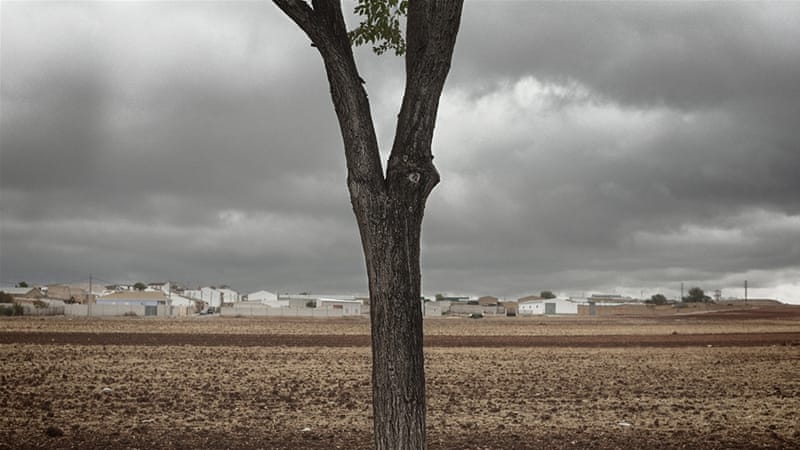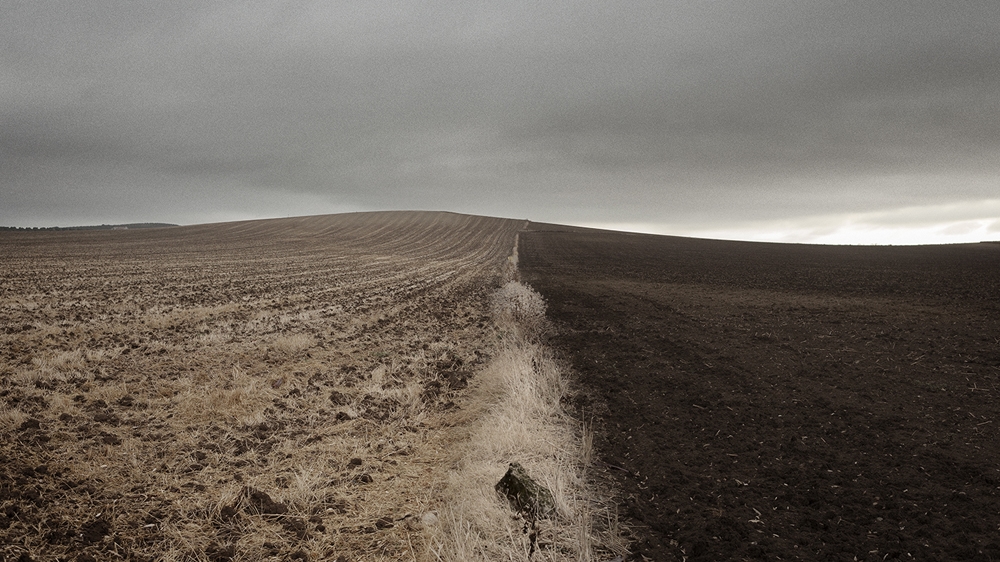
Marinaleda, Spain - At first sight, Marinaleda appears to be a typical Andalusian village with white-washed houses and streets that do not come alive until after the sun goes down.
But if you look closely enough, there are signs that things are different in this small town of 2,700 inhabitants: there is the portrait of Che Guevara that adorns its sports centre and the notable absence of commercial billboards.
Marinaleda has been governed by Juan Manuel Sanchez Gordillo, its self-declared communist mayor, for more than 35 years. And while the unemployment rate in the rest of Andalusia is 29 percent, it barely touches five percent here.
The majority of Marinaleda's inhabitants work for the village's agricultural cooperative and earn the same salary - 47 euros (about $54) for a six-and-a-half hour working day. This equates to a monthly salary of 1,200 euros (about $1,370), which might seem low, but it is significantly more than the Spanish minimum wage of 764 euros a month (about $870).
Life in the village is also much cheaper than in the rest of the region. For 15 euros a month, inhabitants can pay off their mortgage. The same price gets them membership of the sports centre, or a kindergarten place for their child. The local government provides three free school meals a day. As a result, even the small number of unemployed inhabitants are able to make ends meet with the 400 euro jobseeker's allowance provided by the Andalusian government.
 |
| New government-owned houses are being built in the village [Hagar Jobse/Al Jazeera] |
The secret of Marinaleda
Marinaleda's "secret" lies in the 1,200 hectares of land just outside the village.
A message written on the wall of an old farmhouse sheds light on the village's history and ethos. "This land belongs to all the unemployed labourers of Marinaleda," it declares.
Twenty-five years ago, the El Humoso farmhouse and its estate belonged to a wealthy landowner, who left the land uncultivated for most of the year while more than 60 percent of Marinaleda's inhabitants were unemployed and living in extreme poverty.
Then, in 1979, after being elected mayor, Juan Manuel Sanchez Gordillo started campaigning for land reforms to benefit Marinaleda's unemployed and landless labourers. Twelve years of strikes, during which villagers would occupy the land surrounding Marinaleda, followed.
In 1991, the regional government finally awarded the farm and its 1,200 hectares of land to the village. The village's agricultural cooperative was established soon after.
The cooperative aimed to grow those crops that required the greatest amount of labour, such as red peppers, paprika and artichokes, so as to create as many jobs as possible.
A few years later, Marinaleda built its first processing factory, to can and jar the cooperative's produce.
For the past 24 years, the farm and the factory have provided employment to Marinaleda's inhabitants, while all of the cooperative's profits are invested in the creation of new jobs. The village's mayor and members of the local council work voluntarily at the cooperative but have other jobs through which they earn a wage. For many years, the mayor worked as a history teacher at the local high school.
 |
| Marinaleda's 'secret' lies in the 1,200 hectares of land just outside the village [Hagar Jobse/Al Jazeera] |
'What else could I wish for?'
The factory, adorned with huge paintings of a pepper, a chili and an artichoke, is located on the edge of the village.
Inside, around 30 women wearing mint green vests are lined up along a conveyor belt, de-stemming peppers one by one.
Among them is 48-year-old Asencion Torres, who works here each day from 6.00 in the morning until 2.30 in the afternoon. Nowadays, she earns enough money to make ends meet, but as a young girl her family could barely afford to buy food.
"Although my father sometimes did small jobs for the landlord, he barely earned any money," she says. "We never had enough to eat. Having a job was a real privilege."
Asencion's colleague, Isabel Montesinos, 47, has worked at the factory since she was 29, and for that she is grateful. "I am so happy with this job. Before I started at the factory I harvested the crops. That was much tougher," she says.
Montesinos was also one of the first of Marinaleda's inhabitants to receive a house from the government. Now, there are 250 government-owned houses in the village.
The government provides or pays for the building materials so that the members of the cooperative can build their own house. But while they build them themselves - often with the help of other cooperative members - and pay a mortgage to cover the building costs, the houses are essentially government-owned, and inhabitants aren't allowed to pay off any more than 15 euros a month. The aim is to prevent property speculation.
And Montesinos says she couldn't be happier with the situation. "I have my own house and two cars. What else could I wish for?" she asks. "I owe that to the mayor."
http://www.aljazeera.com/indepth/features/2016/04/spain-utopia-1604...

You need to be a member of Saviors Of Earth to add comments!
Join Saviors Of Earth